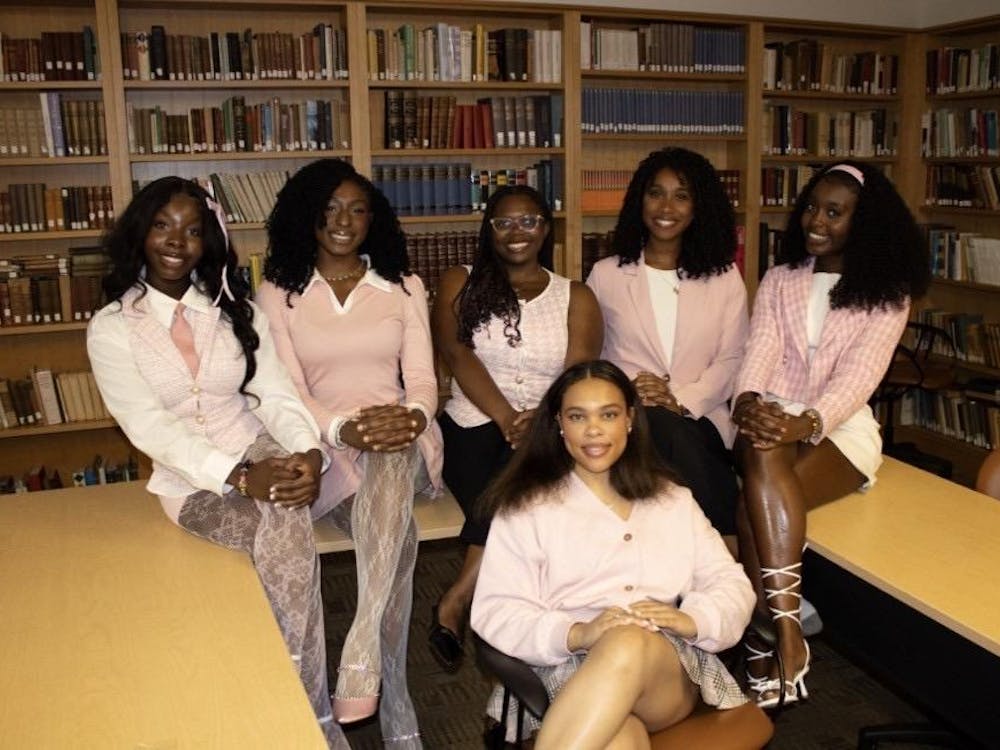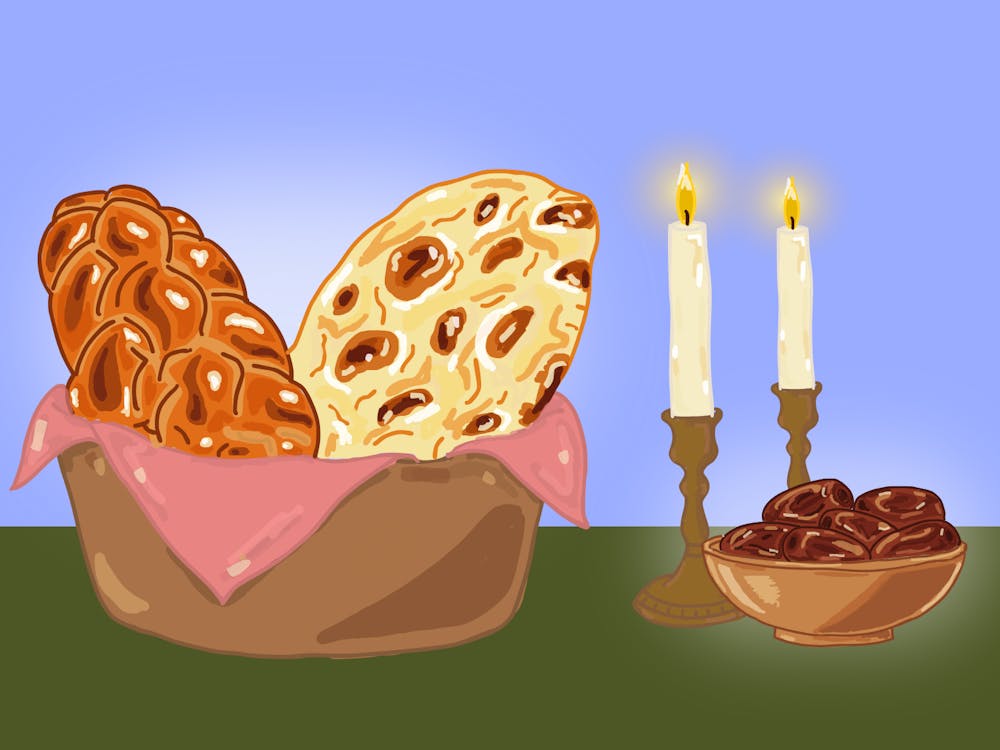No matter a student’s background, disposition or sense of preparedness, coming to college marks a big life change. From adapting to a new environment crawling with strangers to deciding which clubs and communities to join, a student’s transition to the University — a place seemingly infinite in resources, people and potential — can be intimidating.
Nevertheless, many upperclassmen have lived to tell the tale. These fourth-year students offer their reflections on their first year at the University, and they say, in resounding agreement, that new students should prioritize relationships, explore their interests and put their most authentic self forward.
Fourth-year Commerce student Adarsh Shah, who hails from the small town of Staunton, Va., said that he did not have much exposure to the “greater educated world” before college. For him, the transition to the University was marked by uncertainty.
“I was definitely a little nervous at first,” Shah said. “I didn't really know what the year was going to be like.”
Fourth-year Batten student Suliana Barrera encountered similar feelings upon arriving at the University. As a first-generation college student, she said she carried thoughts of self-doubt and felt somewhat out of place among her University peers — feelings that all-too-many first-year students silently endure.
“I definitely felt that imposter syndrome … because it's so new,” Barrera said. “I was overwhelmed by the amount of choices that I had to make [and] trying to figure out what my place was at school.”
To help overcome these feelings and adjust to the University, Shah said that he took advantage of every opportunity to engage with new communities. He frequently checked the flyers hanging up in Observatory Hill Dining Hall, and he poured through emails from Listservs he joined at the Fall Activities Fair in late August.
By attending countless talks, performances and club meetings, Shah connected with dozens of people, and he said the University felt “like home” within weeks. He said that these first couple of months were the perfect time for him to branch out and embrace the novelty of college, as everyone was eager to meet people and make new friends.
Fourth-year College student Bacheler Burt offered the same insight, having found many of his close friends during his first year. With a passion for music as his guide, Burt said that he quickly joined a jazz combo group and a band, which led him to like-minded people. He encouraged new students to similarly immerse themselves in all that is offered around Grounds.
“Live outside of the dorm. Really dive into what is offered around school,” Burt said. “I think if you just embrace the energy of people trying new things, you're going to find people [and] things you like to do very easily.”
These students all agree that it is important to take advantage of the unique season of college, expanding your social networks and exploring new spaces around the University. However, Burt acknowledged that it is easy for first-year students to overbook themselves, especially as they transition out of their busy high school schedules. During his first year, Burt said he joined an overabundance of organizations that were loosely related to his interests, and it left him feeling “spread too thin.”
Instead, Burt encouraged new students to be selective with their involvements and spend their time pursuing endeavors that are meaningful to them. Doing that, he said, will lead to a fulfilling four years.
“Sometimes, you might be compelled to do something just for the sake of doing it, or because you think it might look good,” Burt said. “But try to be intentional with your involvement to make sure you love doing [what you’re doing].”
Still, with any array of involvement, these students recognize that there is an expectation to stay deeply involved and consistently achieve at the University. Barrera recognized that this expectation can be especially overwhelming for first generation students and students of color, like herself, who worry about validating their worth to themselves, loved ones and peers.
Barrera pointed to the University’s peer mentoring programs, various student centers and culturally-oriented clubs, including multicultural Greek organizations, as spaces for underrepresented students to share in their experiences so that they “don’t feel so alone,” she said.
Above all, Barrera urged incoming students, especially those from marginalized backgrounds, not to agonize over how others perceive them. Instead, she said, simply be present in the moment and invest in valued friends, clubs and causes.
“We have this pressure of trying to be the ‘model minority,’ [but] we've already made it to U.Va. There's nothing that we need to prove,” Barrera said. “All that we need to do is invest in ourselves, invest [in] spaces [at] the University that we want to invest in and get our degree.”
Like Barrera, Shah said that no matter what a student’s experience at the University looks like, their diploma will set them up for post-graduate success. Within the safety net of college, he said, students should feel empowered to try new things, make mistakes, learn and grow.
“I knew that even if I made mistakes and I messed up, I'd still be a graduate of the University of Virginia,” Shah said. “If you come in willing to make mistakes, willing to put yourself out [there], you'll set yourself up not only for a good college career, but a great one.”
Barrera too said that college is a time for exploration, and it is normal to move through college without a perfectly detailed plan.
“Don't take yourself too seriously. College is about figuring out who you are, what your passions are and how you operate best, but there is still space for you to have fun,” Barrera said. “In the end, everything will be okay.”
Above all, these students agree that, indeed, having fun and forging strong bonds is the most fulfilling part of college. Shah said that he has found close-knit communities within the Indian student body, his fraternity and more, all of which have enriched his college experience more than any class. He said that community is at the center of all he does on Grounds, and University students should prioritize relationship-building “to create those meaningful memories” with their peers.
Burt echoed Shah’s sentiment, saying that the people will be what he remembers most about the University. During graduation season this May, he said goodbye to many of his older friends, which put his precious college years — and relationships — into perspective. He emphasized that new students should appreciate each day as it comes, in the company of the people that matter most, because college flies by more quickly than you realize.
“Really try to take every day for what it is and enjoy the people around you,” Burt said. “[Being] mindful [about] where you are and the people you're with [in] college, in all of its ups and downs, is the most important thing you can do."
From meeting life-long friends to joining clubs that spark new passions, these students say that college is rich with possibility — if you let it be. Burt told incoming students to keep seeking, learning and evolving, as opportunities for discovery and connection emerge continuously throughout all four years. First year is only the beginning, he said.
“Don’t get too comfortable,” Burt said. “Don’t stop exploring, meeting new people [and] doing everything you can to make these four years as full and transformative as possible.”







